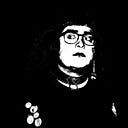The Deleuzian Insurgency of Platonism
Pure Becoming, Simulacra, and Events

[This is the first piece of this 4-part series on Gilles Deleuze which were originally written for Keith Faulkner’s 2022 seminar on Deleuze]
In the first two chapters of Logic of Sense, Deleuze enters into conversation with Plato as an initial expression of the series of paradoxes that concern the present work. The “First Series of Paradoxes of Pure Becoming” is a curious short text which announces the intensive magnitudes of the Deleuze’s philosophy as an insurrection of the Platonism to which philosophy fixates. In the “Second Series of Paradoxes of Surface Events,” Deleuze goes as a far as to reverse the Platonic Idea into a mere effect of superficiality over which we get the semblance of depth. And what better way to announce an insurgency than through superficial secrets?
The texts start through a discussion of pure events as expressed in the literary devices of Lewis Carroll’s Alice’s Adventures in Wonderland and Through the Looking-Glass. In the example where Deleuze notes that when Alice becomes larger than she was, she also becomes smaller than she is now; this paradoxical claim speaks to the simultaneity of becoming which eludes the present which distinguishes, separates, and fixates identity. In the simultaneity of becoming, the core of becoming moves and pulls in both directions at once in this paradoxical fashion; by contrast, “good sense” tries to fix the orientation of sense in a determinate direction (Deleuze, 2015, 1).
For Deleuze, this captivates a difference set out by Plato between limited, measured things and pure becoming without measure. Deleuze holds onto this as the profound, subterranean secret of Platonism which we will see is in fact a paradoxical superficial secret. In this distinction, determinate things are subject to the actions of Idea in a Mode-to-copy relation that concerns Plato’s better-known dualism such as the Idea and matter. On the other hand, pure becoming eludes the action of the Idea through the proliferation of simulacra from copies.
In light of language, this paradox of pure becoming becomes a paradox of infinite identity between the two senses of simultaneous becoming. As much as language tries to fix limiting demarcations of identity, it also transcends those limits back to that unrestricted becoming. It is only through an optical illusion as an effect that a thing stays the same in the present, yet the present is always eluded, and identity breaks down. Or as Deleuze writes: “Paradox is initially that which destroys good sense as the only direction, but it is then that which destroys common sense as the assignation of fixed identities” (Deleuze, 2015, 3).
In the context of the next series, this is further expressed through the narrative of Alice where at first Alice chases for secrets of pure becoming in the depths of the earth, but then she arrives at place with card figures with no depth but sole superficiality (Deleuze, 2015, 9). And in Through the Looking-Glass, pure becoming is no longer sought in depth but at the surface so much so that, at the point where the hallucination of depth becomes an impasse for her, Alice releases her incorporeal double — this double is a figure that skirts the profound unity of bodies through its incorporeality that seeks the superficiality of effects in their paradoxical pure becoming (Deleuze, 10). Thus, following the Stoics, Deleuze distinguishes between the states of bodily affairs (causes as causes) and incorporeal events (effects as effects) with the implications for Platonism that the incorporeal Idea cannot be anything but an effect (Deleuze, 2015, 7). Plato seeks hidden depth in bodies as expressions of the Idea; however, the Stoic reversal turns the Idea to a hallucinatory effect of the superficiality in paradoxes. In this manner, Deleuzian insurgency is not a profound, subterranean secret but rather a superficial open secret akin to “the first secret of the stammerer…” (Deleuze, 2015, 9).
References and Citations:
Deleuze, Gilles. Logic of Sense. Trans. Constantin V. Boundas, Mark Lester, and Charles J. Stivale. London: Bloomsbury, 2015.
